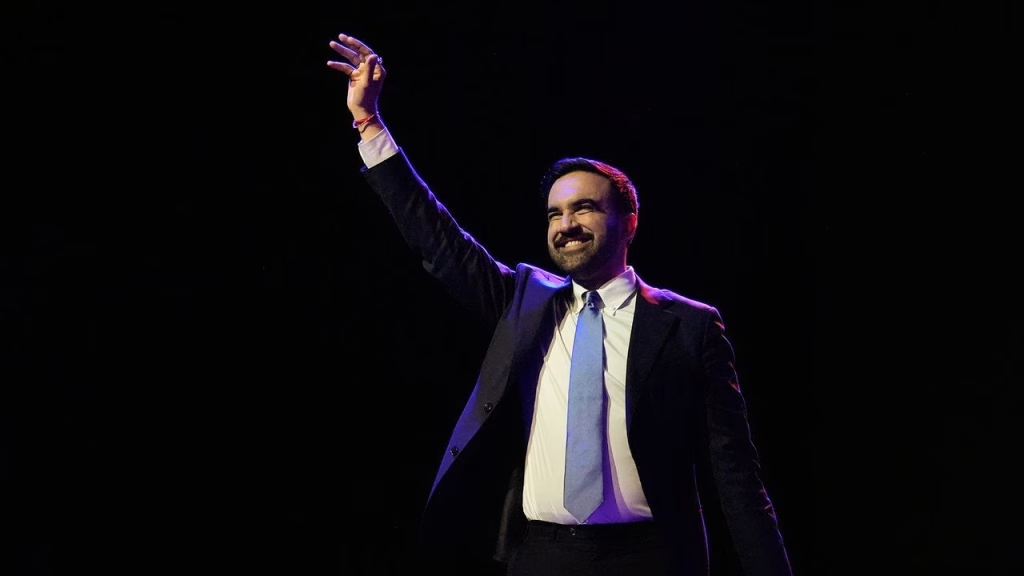Zohran Mamdani Wins
Zohran Mamdani – The clash between federal authority and city governance has reached a new zenith, particularly with the resurgence of legal debates surrounding federal funding. Recently, the spotlight has shifted to Zohran Mamdani, a prominent New York lawmaker and activist whose recent judicial victory poses critical questions for the future of federal funding, especially as it pertains to cities like New York. This article will delve into the implications of Mamdani’s triumph and the broader legal ramifications of former President Donald Trump’s ability—and legality—to cut off federal funding to municipalities that oppose federal directives.

Understanding the Context
The Political Climate
As tensions flare between progressive cities and the federal government, ranging disputes on immigration policy to law enforcement funding have come to the forefront. Former President Trump often labeled cities like New York as “sanctuary cities,” undermining his administration’s objectives. His threats to cut federal funding to such cities raise critical questions about federalism and the limitations of federal power over local governance.

Federal Funding Overview
Federal funding is a critical financial lifeline for New York City. It underpins essential services like education, public health, and infrastructure development. Any threats to withdraw this funding could have catastrophic effects on the city’s ability to maintain these services effectively, especially during challenging economic periods.
The Legal Framework Surrounding Federal Funding
The Basics of Federalism
Federalism in the United States establishes a distinct boundary between federal and state powers. This governance system allows states—and by extension, municipalities—to exercise significant authority, particularly regarding local policies.
Constitutional Considerations
The legality of cutting federal funding hinges on several constitutional principles:
- The Spending Clause: This provision permits Congress to tax and spend to provide for the general welfare. Trump’s administration’s justification for cuts based on local policies raises questions about whether such actions respect this clause.
- The Tenth Amendment: This amendment clarifies that powers not designated to the federal government remain with the states. Retaliatory funding cuts could infringe upon these rights.
Key Precedents
Understanding past rulings is crucial to analyzing the current situation:
- National Federation of Independent Business v. Sebelius (2012): This case set limits on the extent of the federal government’s ability to coerce states through funding conditions.
- South Dakota v. Dole (1987): Allowed funding conditions but highlighted that such conditions must genuinely relate to the purpose of the funding. Arbitrary conditions could be challenged in court.
Zohran Mamdani’s Triumph
Who is Zohran Mamdani?
Zohran Mamdani is a New York State Assembly member representing parts of Queens. Known for his passionate advocacy for social justice and progressive policies, he has emerged as a key figure in the fight against perceived federal overreach.
Details of Mamdani’s Victory
Mamdani’s recent legal victory in a case concerning federal funding not only underscores his position but also addresses broader constitutional implications. His arguments centered on the rights of municipalities to govern without undue federal interference. The court’s decision lent credibility to his standpoint, emphasizing that cutting off funding could be deemed unconstitutional if politically motivated.
The Implications of Mamdani’s Victory
Legal Ramifications
The legal implications stemming from Mamdani’s case could create a protective barrier for local governments against federal authority. If challenged successfully, Trump’s ability to withhold federal funds might be constrained, ushering in a new era of resistance towards executive overreach.
National Impact
The ramifications of this decision extend nationally. Other cities that might fear similar threats could follow New York City’s lead, and defend their rights through legal means. This uniformity could protect local governance across the country.
The Current Political Landscape
Trump Administration’s Stance
During his presidency, Trump attempted to position himself as a law-and-order president, threatening to cut federal funding to cities that he perceived as failing to ensure public safety. These threats were often politically motivated rather than based on genuine concerns for governance and order.
Responses from New York Officials
City officials, aware of the significant consequences of losing federal funding, rallied against these threats. Mayor Eric Adams, among others, has emphasized that such cuts disproportionately affect vulnerable populations and undermine essential public services.
Public and Advocacy Group Response
Activist groups have also emerged in defense of local governance, arguing that financial threats aimed at politically opposing cities infringe upon democratic principles and local autonomy. As these groups mobilize, the legal landscape is poised for transformation.
The Broader Conversation: Federal vs. Local Power
Striking a Balance
This scenario raises significant questions about the balance between federal versus local power. As states and cities continue to define their identities and approaches to governance, federal funding’s role will remain central to this discussion.
The Role of Legal Advocacy
Legal scholars and activist lawyers, such as Mamdani, contribute significantly to this discourse. They encourage scrutiny of executive actions, fostering a legal environment where cities can assert their rights without the cloud of federal funding cuts looming over them.
The Future: What Lies Ahead?
Upcoming Legal Challenges
Expect litigation from cities targeted by federal funding cuts to become a prevalent trend, particularly if the Trump administration pursues its agenda beyond the presidency. Cities like New York can act as bellwethers for how these discussions will unfold nationally.
Political Consequences
If Trump finds legal obstacles impeding his proposed funding cuts, it may bring about a shift in voter attitudes. The electorate may increasingly favor candidates who prioritize local governance and assert the rights of municipalities against federal overreach.
Conclusion
Zohran Mamdani’s triumph represents a critical moment in the ongoing struggle for local autonomy against federal encroachment. The overarching questions regarding the legality and morality of cutting federal funding based on political motivations transcend New York City and touch all American cities.
As legal arguments continue to evolve, this case and others like it will shape the dialogue around federalism and governance in the United States. For cities that cherish their right to self-governance, the stakes have never been higher.
To engage in this ongoing conversation, it’s vital to understand not only the legal ramifications of these funding cuts but also the broader implications for democracy and local control.








